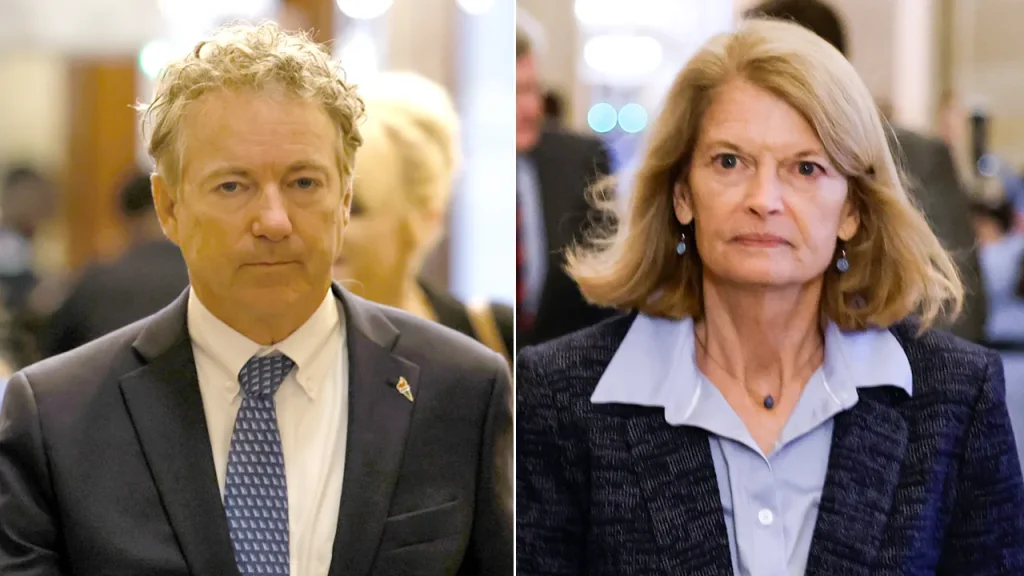Senate Blocks Resolution to Limit Trump’s Anti-Drug Strikes
In a closely contested vote of 51-48, Senate Republicans thwarted a measure aimed at restricting President Donald Trump’s authority to unilaterally order military strikes against vessels allegedly involved in drug trafficking. The motion to discharge the joint resolution from the Committee on Foreign Relations failed to pass despite bipartisan support from some lawmakers. Republican Senators Rand Paul (Kentucky) and Lisa Murkowski (Alaska) joined most Democrats in supporting the resolution, while Democratic Senator John Fetterman (Pennsylvania) crossed party lines to vote with Republicans against it. Fetterman had previously expressed his support for “confronting the scourge of cartel drug trafficking to our nation,” highlighting the complex political dynamics surrounding the issue.
The proposed resolution would have directed the President to “terminate the use of United States Armed Forces for hostilities against any organization designated on or after February 20, 2025, as a foreign terrorist organization or specially designated global terrorist, any states in which those entities operate, or any non-state organization engaged in the promotion, trafficking, and distribution of illegal drugs and related activities.” This limitation would have applied unless Congress explicitly authorized such actions through a formal declaration of war or specific authorization for the use of military force. The measure represents the ongoing tension between presidential war powers and Congress’s constitutional authority to declare war, a balance that has been debated throughout American history.
President Trump’s administration has conducted several strikes against vessels they claim were operated by “narcoterrorists.” After each operation, Trump announced that “narcoterrorists” had been killed, framing these actions as necessary steps in combating drug trafficking into the United States. War Secretary Pete Hegseth reinforced this position in a recent social media post, declaring, “Our intelligence, without a doubt, confirmed that this vessel was trafficking narcotics, the people onboard were narco-terrorists, and they were operating on a known narco-trafficking transit route.” Hegseth emphatically added, “These strikes will continue until the attacks on the American people are over!!!!” The administration has taken a firm stance that these operations fall within the President’s constitutional authority to protect American interests.
The debate over these strikes touches on fundamental questions about the separation of powers in the American government. The Trump administration recently informed Congress that it had determined the U.S. is engaged in a formal “armed conflict” with “terrorist” drug cartels, a designation that provides legal justification for military action under the President’s Article II powers as Commander-in-Chief. Critics argue this represents an overly broad interpretation of presidential war powers that sidesteps Congress’s constitutional role in authorizing military action. Supporters contend that drug trafficking constitutes a direct threat to national security that requires immediate and decisive action without the delays of congressional authorization.
Even among those who voted against the resolution, concerns about executive overreach were evident. Senator Todd Young (R-Indiana), who opposed the discharge motion, expressed significant reservations about “the legality of recent strikes in the Caribbean and the trajectory of military operations without congressional approval or debate and the support of the American people.” Young articulated the nuanced position held by many lawmakers, acknowledging that while “the Constitution grants Article II authorities to the executive branch to defend against imminent threats, Congress alone is entrusted with decisions of war and peace.” His statement reflects the difficult balance many legislators are trying to strike between supporting robust action against drug trafficking and preserving constitutional checks and balances.
The failed resolution highlights the broader ongoing debate about presidential war powers that has intensified across multiple administrations. Since the War Powers Resolution of 1973 was passed in the wake of the Vietnam War, Congress has struggled to reassert its constitutional authority over decisions of war and peace. The Trump administration’s classification of drug trafficking organizations as terrorist groups and targets for military action represents the latest chapter in this constitutional tension. As these strikes continue, particularly in regions near Venezuela and throughout the Caribbean, questions about congressional oversight, the definition of “hostilities,” and the appropriate use of military force against non-state actors will likely remain at the forefront of political debate. The outcome of this vote suggests that, for now, the President maintains significant latitude to conduct such operations without explicit congressional approval.














